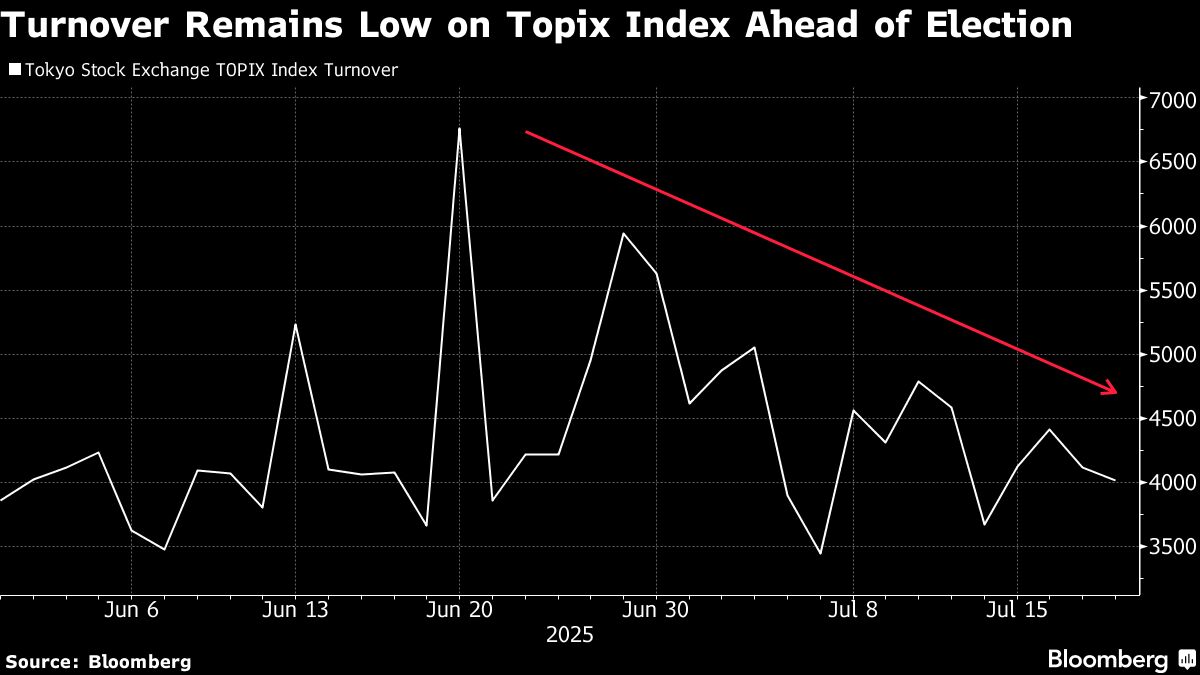
Traders of Japanese stocks saw transaction volumes shrinking in the run-up to this weekend’s potentially disruptive upper house election.
Turnover on the benchmark Topix index this week was below its 52-week average, while today’s Tokyo Stock Exchange volume was 2.2 percent lower than the 5-day average at the same time of day, data compiled by Bloomberg show.
Online brokerage ATFX, which saw more than $770 billion in global trades in the first quarter, said CFD trades on Japanese stocks this week fell 30 percent to some of the lowest levels since December, according to Nick Twidale, chief analyst. A CFD, or Contract for Difference, allows traders to bet on price movements without actually owning or borrowing the stock.
ALSO READ: Bank of Japan keeps rate unchanged, to slow bond taper
Investors are bracing for a potential triple drop in Japanese stocks, bonds and the yen after Sunday’s election. Media polls point to a defeat for the ruling coalition led by the Liberal Democratic Party.
“People are certainly cautious,” said Katsuaki Nagai a trading section manager at Marusan Securities Co Ltd. “What you’re seeing isn’t panic, but a kind of forced hesitation.”
READ MORE: Tariff crossfire hits Toyota, Nissan, Ford suppliers in Japan
If the ruling bloc loses a majority in the chamber, there’s a risk of looser government spending which could destabilize the bond market, according to Fitch Ratings. That may deter stock investors from making big bets that may backfire on poor sentiment.
The Topix index has risen from its April “Liberation Day”- tariff lows to trade near all-time highs. The trend slowed down this week with Japanese equities struggling for direction as election risks loomed.
READ MORE: WeChat miniprogram launched to improve dining experience in Japan
Some traders say orders are calm because most investors have already had time to change positions ahead of the vote. Takehiko Masuzawa, head of equity trading at Phillip Securities Japan, said orders are relatively steady at the moment.
“Especially this time, doubts about the ruling coalition keeping the majority have surfaced early,” said Masuzawa. “Any portfolio adjustments are likely to have happened ahead of time,” noting his trading desk saw an increase in volume last week as election worries along with the announcement of a higher US tariff rate prompted repositioning.


